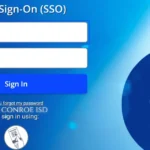Introduction to 404.594.9134 and phone scams and spoofing
Have you ever glanced at your phone and seen an unfamiliar number pop up, like 404.594.9134? Your curiosity piques, but that could be a dangerous trap. In today’s digital age, answering unknown calls can lead to unexpected consequences. As phone scams and spoofing tactics become increasingly sophisticated, it’s crucial to tread carefully before picking up the phone.
With scammers lurking behind seemingly innocent numbers, you might find yourself caught in a web of deceit without even realizing it. Let’s dive into the world of phone scams together and uncover why that next call could be more than just an annoyance—it might prove perilous for your personal information and peace of mind.
What is 404.594.9134?
404.594.9134 is a phone number that has garnered significant attention in recent discussions about scams and unwanted calls.
Many people have reported receiving calls from this number, often leading to confusion and concern about its legitimacy. It’s not just a random sequence but rather one of many numbers used by scammers to reach unsuspecting individuals.
Scammers frequently exploit well-known area codes or specific sequences like 404.594.9134 to create an illusion of trustworthiness. This tactic makes it difficult for recipients to discern whether the call is genuine or a potential threat.
Understanding the origins and usage of such numbers can help individuals recognize warning signs associated with fraudulent activities, elevating awareness around phone safety and security measures that everyone should adopt.
Explaining the dangers of answering unknown numbers
Answering unknown numbers can lead to unexpected consequences. Many people believe a call is harmless, but that’s not always the case. Scammers often use these calls to manipulate and deceive.
When you pick up, your voice could be recorded or used against you later. This tactic allows scammers to create fake conversations that seem legitimate.
Moreover, answering unfamiliar calls may expose you to robocalls or phishing attempts. These automated messages are designed to extract personal information or sell fraudulent services.
Even if the number seems local, it might be spoofed—technology enables fraudsters to mask their true identity easily. This makes it vital for individuals to remain vigilant and cautious when dealing with unknown callers. You never know what intentions lie behind that ring on your phone.
The rise of robocalls and their impact on society
The rise of robocalls has become a growing concern for many individuals. With the advent of technology, automated systems can now dial thousands of numbers in seconds. This efficiency makes it easy for scammers to reach unsuspecting victims.
People are inundated with these calls daily. They disrupt routines, invade privacy, and create an atmosphere of distrust. The sound of a ringing phone no longer guarantees good news; instead, it often brings anxiety.
Robocalls have also desensitized people to legitimate communication. Important reminders or urgent messages from businesses get lost amid the noise. As society adapts to this new normal, distinguishing between real threats and genuine outreach becomes increasingly challenging.
Many feel overwhelmed by constant interruptions that chip away at their peace of mind. It’s not just about annoyance; it’s about feeling secure in one’s own home and having control over personal communications.
How scammers use spoofing to trick people into answering?
Scammers have become increasingly sophisticated in their tactics, and one of the most deceptive methods is spoofing. By disguising their numbers to appear as local or familiar contacts, they create a false sense of security for unsuspecting victims.
Imagine your phone ringing with a number that looks like it belongs to your bank or even a friend. This tactic is designed to lure you into picking up the call without hesitation. Once on the line, scammers often employ high-pressure tactics or emotional manipulation.
They may claim there’s an urgent issue that requires your immediate attention, such as account verification or prize notifications. The goal? To extract personal information quickly before you realize something isn’t right.
This blend of familiarity and urgency makes it hard for individuals to resist answering calls from unknown numbers—an effective strategy for fraudsters looking to exploit human nature.
Real-life examples and stories of phone scams
One woman received a call from 404.594.9134, claiming to be her bank’s fraud department. The caller provided just enough information to sound legitimate, and she panicked. After confirming personal details, she lost thousands in mere minutes.
Another individual thought they had won a vacation after answering an unknown number. Excited about the prize, they followed instructions that led them to provide credit card info for “taxes.” Eventually, the vacation turned out to be non-existent.
A senior citizen fell prey when someone pretending to be their grandchild called from 404 area code asking for emergency funds. Trusting their voice, they sent money without hesitation.
These stories highlight how easily scammers manipulate emotions and urgency. Each case serves as a reminder of the importance of vigilance when dealing with unknown callers.
Tips for protecting yourself from phone scams and spoofing
Stay vigilant when it comes to answering calls from unknown numbers. If you see 404.594.9134 or any unfamiliar digits, trust your instincts and let it go to voicemail.
Consider using call-blocking apps or features on your smartphone. These tools can filter out suspected spam and reduce the number of unwanted interruptions.
Always verify the identity of callers who claim to be from legitimate organizations. A quick search online can reveal whether a number is associated with scams.
Never share personal information over the phone unless you’re certain about who you’re talking to. Scammers thrive on obtaining sensitive data, so keep that info close.
Educate friends and family about these risks; awareness is key in combating phone scams together. Stay informed about current trends in robocalls and spoofing tactics, as they evolve constantly.
Conclusion: Be cautious and stay safe in the digital age
As we navigate this digital age, it’s crucial to remain vigilant. The rise of phone scams and spoofing has made it easier for scammers to prey on unsuspecting individuals. Numbers like 404.594.9134 can be deceptive, luring you into answering with the promise of important information or urgent matters.
The best defense is knowledge and caution. Always think twice before picking up calls from unknown numbers. If something feels off, trust your instincts and let the call go to voicemail.
Taking proactive steps—such as registering with the National Do Not Call Registry or utilizing call-blocking apps—can significantly reduce your risk of falling victim to these malicious tactics.
Protect yourself by staying informed about common scams and sharing this knowledge with friends and family members who might not be aware of these threats. In a world where technology constantly evolves, being cautious will help ensure your safety in every ring that comes through on your phone line.
ALSO READ: RPDJAFUD: Unlocking Its Meaning & Modern Impact
FAQs
What is 404.594.9134?
404.594.9134 is a phone number that has been reported in connection with suspicious and potentially fraudulent calls. Many people have flagged it as a source of robocalls or scams, often using spoofing tactics to appear trustworthy.
Is it safe to answer calls from 404.594.9134?
No, it’s best to avoid answering calls from 404.594.9134 unless you’re expecting someone from that number. It has been associated with scam activities, and answering may confirm your number is active to spammers.
What should I do if I answered a scam call from 404.594.9134?
If you answered and shared any personal information, monitor your accounts closely and consider reporting the incident to the FTC or your local consumer protection agency. It’s also wise to block the number.
How do scammers use spoofing with numbers like 404.594.9134?
Scammers use spoofing to make their number look local or familiar—like 404.594.9134—so you’re more likely to answer. It’s a psychological trick to gain trust quickly before attempting fraud.
How can I block or report calls from 404.594.9134?
You can block the number using your phone’s settings or a call-blocking app. To report it, file a complaint with the FCC or FTC, or add it to the National Do Not Call Registry.






